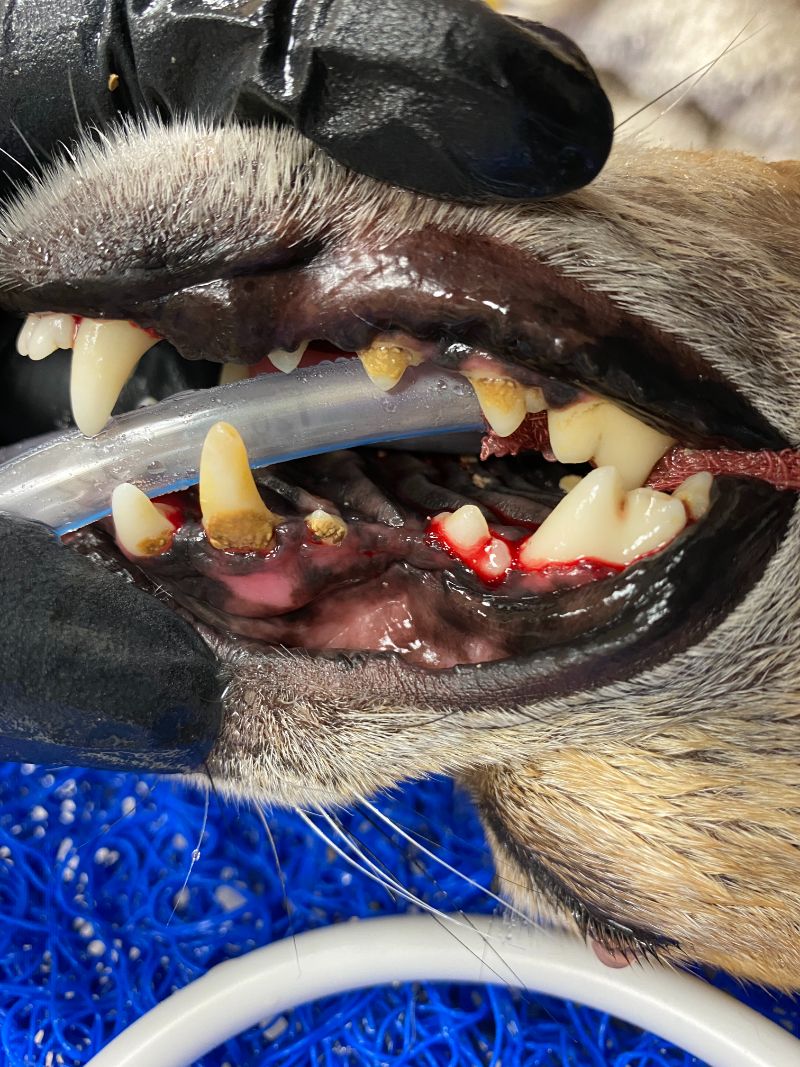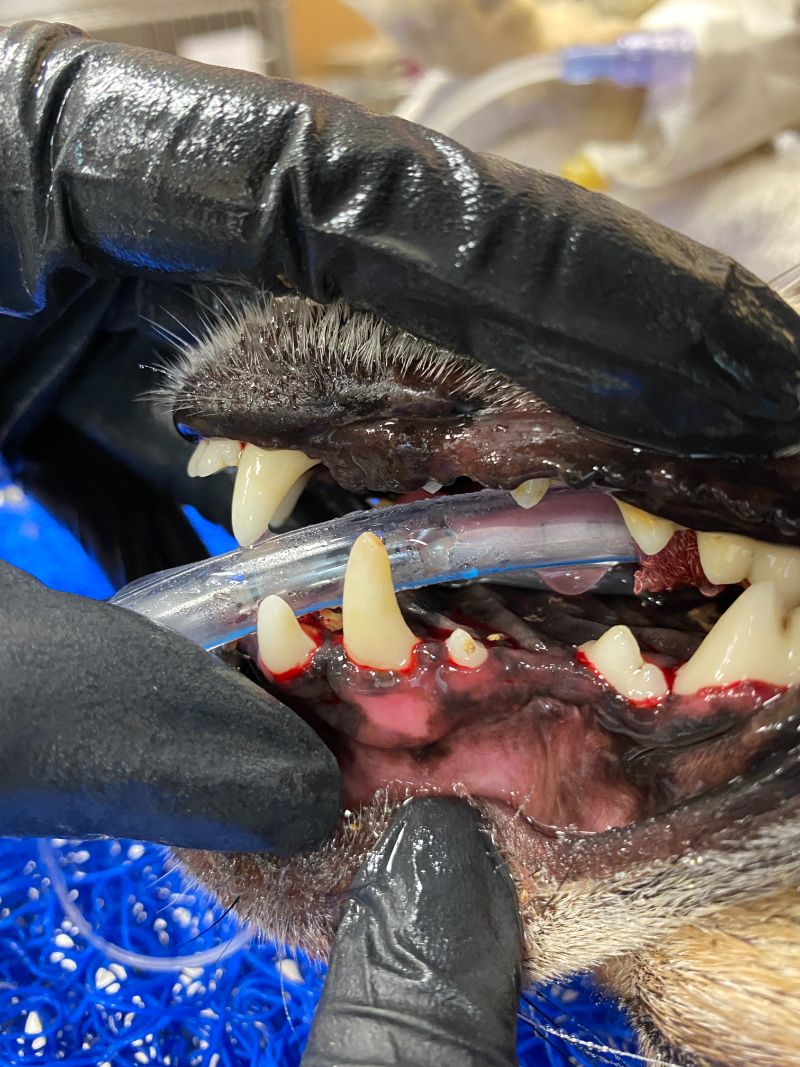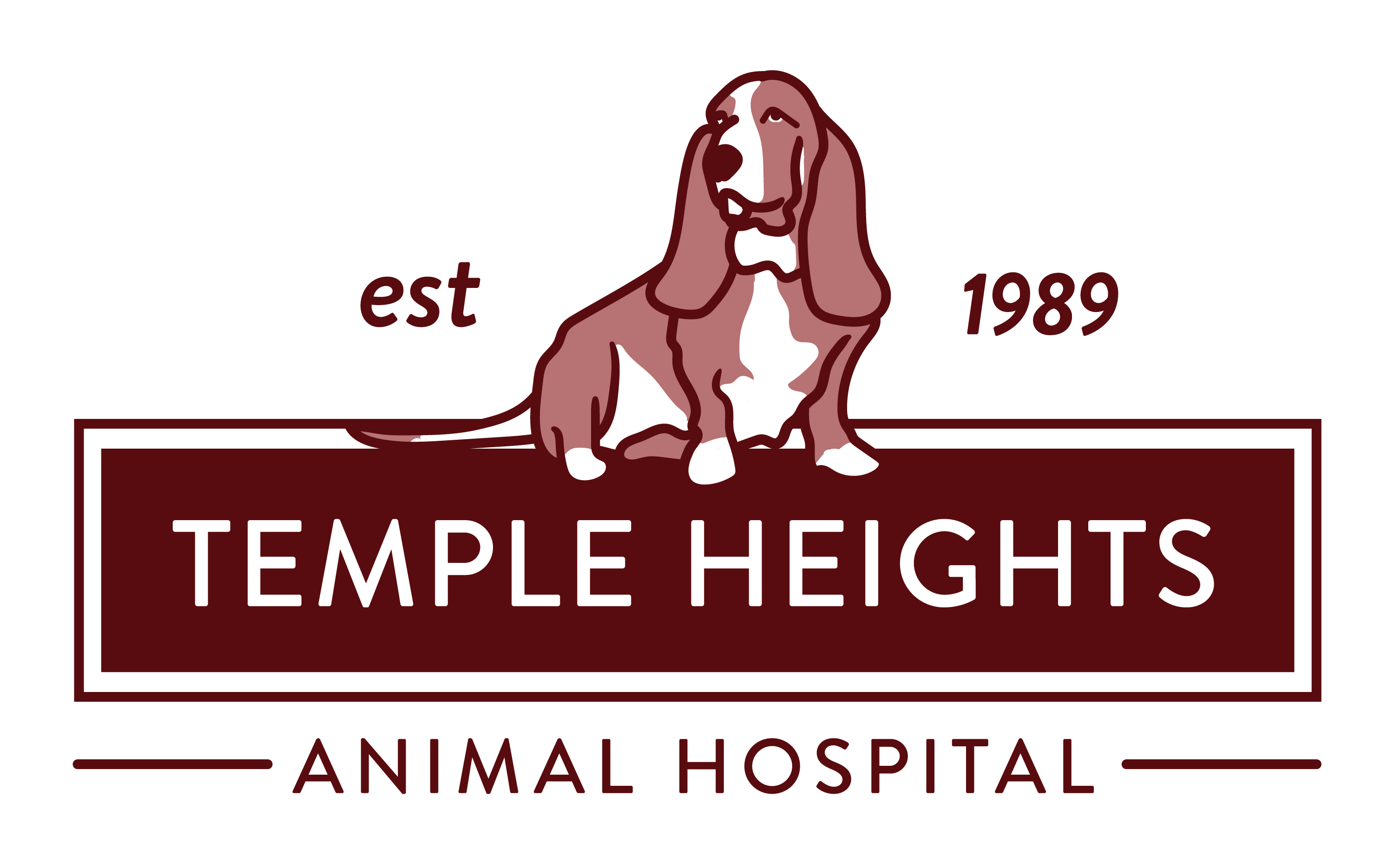Dental Health Month
Our veterinary team should check your pet’s teeth and gums at least once a year to look for early indicators of disease and to maintain proper oral health.
Your pet’s dental health is important!
The most common dental disease in dogs and cats is periodontal disease, which develops early in life and gets worse as your pet matures if no preventative measures aren’t taken. By the age of 3, most pets will have some signs of periodontal disease. We can help!
We offer comprehensive pet dental care.
Pet Dentistry
Temple Heights Animal Hospital performs many standard pet dentistry services, from simple cleanings to oral surgery. Pets can have dental disease just like humans. Naturally, we highly recommend preventive care. If left untreated, plaque and tartar buildup can lead to tooth loss and cause other infections throughout the body. Your pet’s teeth and gums should be checked at least twice a year by a veterinarian to check for early signs of dental disease and to keep your pet’s mouth healthy.
Your pet’s mouth should be checked sooner if you observe any of the following problems:
- Bad breath
- Broken or loose teeth
- Extra teeth or retained baby teeth
- Teeth that are discolored or covered in tartar
- Abnormal chewing, drooling, or dropping food from the mouth
- Bleeding from the mouth
- Swelling in areas surrounding the mouth
- Inflamed gums
• Dental Disease
According to the American Veterinary Dental Society, 80% of dogs and 70% of cats show signs of oral disease by age 3. Indications of oral disease include bad breath, a change in eating or chewing habits, pawing at the face or mouth, or depression. If your pet is older than 1 year, or if any of these signs are present, please schedule your pet for a dental exam at Temple Heights Animal Hospital.
Just as in humans, bacteria, saliva, and food accumulate on your pet’s teeth, leading to the formation of plaque. If plaque is not removed with frequent brushing, gingivitis (inflammation of the gums) can develop. Plaque can lead to a buildup of tartar. Without proper dental care, plaque and tartar buildup can lead to serious periodontal disease. If left untreated, periodontitis can result in tooth loss. Your pet may not exhibit outward signs of pain. However, if your pet is experiencing later stages of dental disease, your pet is feeling discomfort and pain.
Symptoms of periodontal disease include yellow/brown tartar buildup along the gum line, red inflamed gums, and persistent bad breath. The infection caused by periodontal disease can enter the bloodstream, and potentially affect the heart, liver and kidneys.
Recommendations
- Schedule a dental exam and, if needed, a professional dental cleaning.
- Establish an at-home dental care regimen that includes regular brushing and a proper diet.
- Schedule regular follow-up checkups for your pet with the Veterinarian.
• Teeth Cleaning
Temple Heights Animal Hospital provides professional teeth cleaning under anesthesia. We measure for dental pockets, clean the teeth using an ultrasonic scaler, polish, and fluoride to treat your pets’ teeth. We also administer antibiotics and pain medications as needed.
Periodontal disease results from the action of oral bacteria in conjunction with your pet’s response to that infection. Both are responsible for the creation of periodontal pockets. Once a pocket forms, it serves as a hiding place for food, plaque, and calculus to accumulate. Eventually, the tooth will loosen, and if allowed to continue, this will result in the loss of supporting bone and the destruction of supporting gingiva.
• Digital Dental X-Rays
Temple Heights Animal Hospital offers state-of-the-art digital dental x-rays for a more precise diagnosis and quality care of your pets’ teeth. This provides a clear view of the underlying bone and tooth roots or any other pathology. Digital systems enable veterinarians to manipulate images on the screen. The specific area of concern on the x-ray can be enhanced or enlarged for better visualization of the pathology.
• Oral Surgery
Temple Heights Animal Hospital offers oral surgery for several types of procedures:
- Restoration of caries and enamel defects
- Feline dental resorptive lesions
- Tumors of the maxilla, mandible, and facial areas
- Surgical extractions of diseased teeth
- Therapy for oral inflammation
• Spay/Neuter Surgery
There are many benefits to spay/neuter surgeries. Spay/neutered pets have less desire to roam the neighborhood in search of mates. This is helpful for pets since they are less likely to be injured, lost, or get into a fight. Spay/neutered pets are also less likely to bite or acquire other behavioral issues. Males have less desire to spray or mark their territory. Lastly, removal of the reproductive organs decreases the incidence of certain cancers as the pet ages.
In the larger picture, spaying and neutering is necessary to help with pet overpopulation. Millions of cats and dogs are euthanized yearly in this country because of overpopulation or not being adopted.


